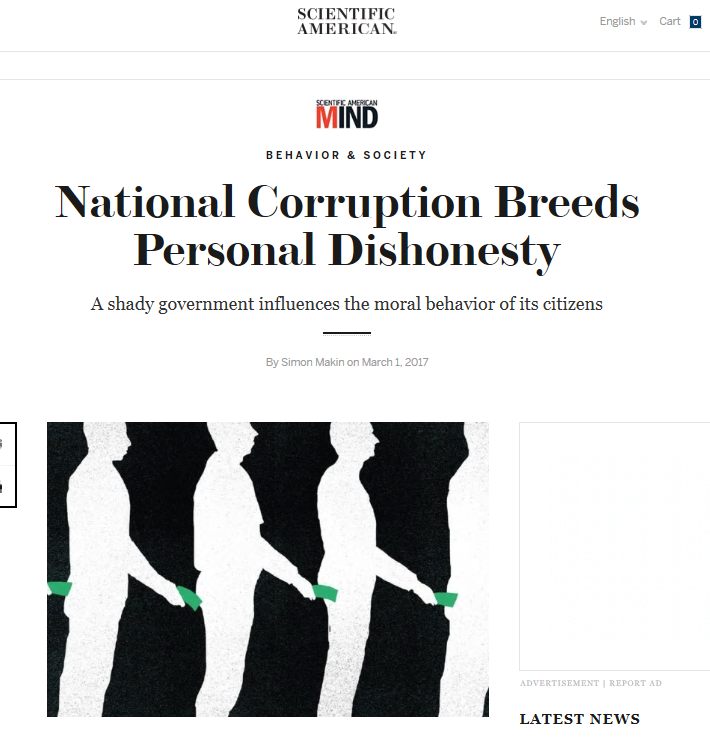Corruption at the top breeds corruption beneath
An article in the Scientific American – National Corruption Breeds Personal Dishonesty – describes how a shady government influences the moral behaviour of the people it governs.
It is based on a study, first published last year in Nature, by behavioural economists Simon Gächter of the University of Nottingham and Jonathan Schulz of Yale University.
When people see blatant corruption at the top and widespread corruption all around, they are more inclined to behave in corrupt ways themselves.
Economic theory holds that people act to maximise their gains. But this study finds that even if they have the opportunity to cheat, lie and be corrupt so as to maximise their gains, people are not necessarily predisposed to do so. The financial incentive competes with their psychological need to think well of themselves and have self-respect.
But there’s a shift in that when people see endemic corruption going untackled (the ‘everybody’s doing it’ scenario). Schulz says: “It’s easier to keep a good self-image while being more corrupt, if you see a lot of corruption around you.” In other words, if you see the Prime Minister, his chief of staff and some cabinet ministers doing it, you’re not going to think ill of yourself if you do it too.
The article concludes that highly corrupt countries may be difficult to change because their citizens have been shaped by norms that permit dishonesty. The suggested solution? Tackle the young. “Changing formal institutions will be hard, but institutions rely on people,” Schulz says. “It will take a long time, but I think it’s a worthwhile path.”
Sadly for Malta, the young seem to be those most inclined to think that corrupt behaviour is just normal behaviour – because in Malta, it is.

